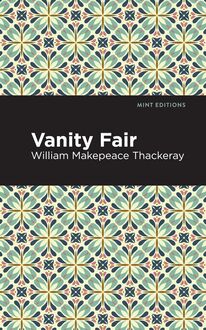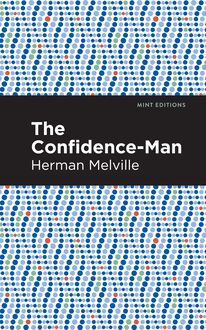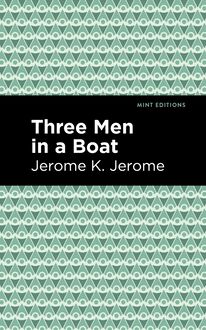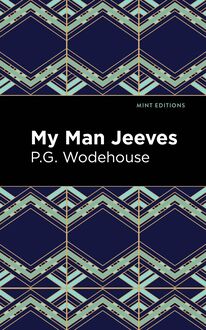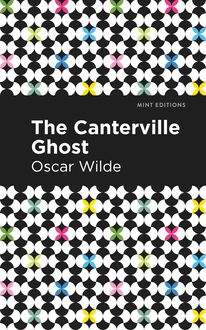-
 Univers
Univers
-
 Ebooks
Ebooks
-
 Livres audio
Livres audio
-
 Presse
Presse
-
 Podcasts
Podcasts
-
 BD
BD
-
 Documents
Documents
-
- Cours
- Révisions
- Ressources pédagogiques
- Sciences de l’éducation
- Manuels scolaires
- Langues
- Travaux de classe
- Annales de BEP
- Etudes supérieures
- Maternelle et primaire
- Fiches de lecture
- Orientation scolaire
- Méthodologie
- Corrigés de devoir
- Annales d’examens et concours
- Annales du bac
- Annales du brevet
- Rapports de stage
La lecture à portée de main
Vous pourrez modifier la taille du texte de cet ouvrage
Découvre YouScribe en t'inscrivant gratuitement
Je m'inscrisDécouvre YouScribe en t'inscrivant gratuitement
Je m'inscrisEn savoir plus
Vous pourrez modifier la taille du texte de cet ouvrage
En savoir plus

Description
True History (2nd century C.E.) is a satirical novel by Lucian. Written in ancient Greek, True History is thought to be the first work of science fiction in all of Western literature. Intended as a criticism of the unbelievable scenarios populating ancient fiction, True History dramatizes the extent to which authors will relate fantastic or mythological material as truth to humorous and imaginative effect.
Before beginning his narrative, Lucian admits that though the claims he will make are far from truth, he will make them, nonetheless. Accordingly, he weaves a tale of a voyage by sea thrown off course near the Pillars of Hercules by a powerful storm. Narrowly escaping disaster, Lucian and his fellow travelers find themselves on an island interwoven with rivers of wine, in which fish swim and bears feed and frolic. As if this weren’t enough, rumors of a divine presence and visions of trees like women encourages the travelers to seek safety elsewhere. Not far into the next leg of their journey, their ship is swept skyward by a storm so powerful it lands them on the Moon. There, they are swiftly swept up in a war between the armies of the Moon and Sun, vast alien forces vying for control of the Morning Star. Helping to organize a peace treaty, Lucian and his travelers take in the sights of the Moon before returning to Earth just in time to be swallowed by a massive whale. As the narrative unfolds, these poor lost voyagers encounter fish people, discover an island of cheese afloat on a sea of milk, and even meet the heroes of Troy themselves. True History is a wild and wonderful work of satire and science fiction that not only amazes as much as it delights, but serves as a reminder that the humor of the ancients is not so different from our own.
With a beautifully designed cover and professionally typeset manuscript, this edition of Lucian’s True History is a classic of ancient Greek literature reimagined for modern readers.
Sujets
Informations
| Publié par | Mint Editions |
| Date de parution | 02 mars 2021 |
| Nombre de lectures | 0 |
| EAN13 | 9781513277295 |
| Langue | English |
| Poids de l'ouvrage | 3 Mo |
Informations légales : prix de location à la page 0,0250€. Cette information est donnée uniquement à titre indicatif conformément à la législation en vigueur.
Extrait
True History
Lucian
True History was first published in 1921.
This edition published by Mint Editions 2021.
ISBN 9781513272290 | E-ISBN 9781513277295
Published by Mint Editions®
minteditionbooks.com
Publishing Director: Jennifer Newens
Design & Production: Rachel Lopez Metzger
Project Manager: Micaela Clark
Typesetting: Westchester Publishing Services
C ONTENTS The First Book The Second Book
The First Book
E ven as champions and wrestlers and such as practise the strength and agility of body are not only careful to retain a sound constitution of health, and to hold on their ordinary course of exercise, but sometimes also to recreate themselves with seasonable intermission, and esteem it as a main point of their practice; so I think it necessary for scholars and such as addict themselves to the study of learning, after they have travelled long in the perusal of serious authors, to relax a little the intention of their thoughts, that they may be more apt and able to endure a continued course of study.
And this kind of repose will be the more conformable, and fit their purpose better, if it be employed in the reading of such works as shall not only yield a bare content by the pleasing and comely composure of them, but shall also give occasion of some learned speculation to the mind, which I suppose I have effected in these books of mine: wherein not only the novelty of the subject, nor the pleasingness of the project, may tickle the reader with delight, nor to hear so many notorious lies delivered persuasively and in the way of truth, but because everything here by me set down doth in a comical fashion glance at some or other of the old poets, historiographers, and philosophers, which in their writings have recorded many monstrous and intolerable untruths, whose names I would have quoted down, but that I knew the reading would bewray them to you.
Ctesias, the son of Ctesiochus, the Cnidian, wrote of the region of the Indians and the state of those countries, matters which he neither saw himself, nor ever heard come from the mouth of any man. Iambulus also wrote many strange miracles of the great sea, which all men knew to be lies and fictions, yet so composed that they want not their delight: and many others have made choice of the like argument, of which some have published their own travels and peregrinations, wherein they have described the greatness of beasts, the fierce condition of men, with their strange and uncouth manner of life: but the first father and founder of all this foolery was Homer’s Ulysses, who tells a long tale to Alcinous of the servitude of the winds, and of wild men with one eye in their foreheads that fed upon raw flesh, of beasts with many heads, and the transformation of his friends by enchanted potions, all which he made the silly Ph æ akes believe for great sooth.
This coming to my perusal, I could not condemn ordinary men for lying, when I saw it in request amongst them that would be counted philosophical persons: yet could not but wonder at them, that, writing so manifest lies, they should not think to be taken with the manner; and this made me also ambitious to leave some monument of myself behind me, that I might not be the only man exempted from this liberty of lying: and because I had no matter of verity to employ my pen in (for nothing hath befallen me worth the writing), I turned my style to publish untruths, but with an honester mind than others have done: for this one thing I confidently pronounce for a truth, that I lie: and this, I hope, may be an excuse for all the rest, when I confess what I am faulty in: for I write of matters which I neither saw nor suffered, nor heard by report from others, which are in no being, nor possible ever to have a beginning. Let no man therefore in any case give any credit to them.
Disanchoring on a time from the pillars of Hercules, the wind fitting me well for my purpose, I thrust into the West Ocean. The occasion that moved me to take such a voyage in hand was only a curiosity of mind, a desire of novelties, and a longing to learn out the bounds of the ocean, and what people inhabit the farther shore: for which purpose I made plentiful provision of victuals and fresh water, got fifty companions of the same humour to associate me in my travels, furnished myself with store of munition, gave a round sum of money to an expert pilot that could direct us in our course, and new rigged and repaired a tall ship strongly to hold a tedious and difficult journey.
T HUS SAILED WE FORWARD A day and a night with a prosperous wind, and as long as we had any sight of land, made no great haste on our way; but the next morrow about sun rising the wind blew high and the waves began to swell and a darkness fell upon us, so that we could not see to strike our sails, but gave our ship over to the wind and weather; thus were we tossed in this tempest the space of threescore and nineteen days together. On the fourscorth day the sun upon a sudden brake out, and we descried not far off us an island full of mountains and woods, about the which the seas did not rage so boisterously, for the storm was now reasonably well calmed: there we thrust in and went on shore and cast ourselves upon the ground, and so lay a long time, as utterly tired with our misery at sea: in the end we arose up and divided ourselves: thirty we left to guard our ship: myself and twenty more went to discover the island, and had not gone above three furlongs from the sea through a wood, but we saw a brazen pillar erected, whereupon Greek letters were engraven, though now much worn and hard to be discerned, importing, “Thus far travelled Hercules and Bacchus.”
There were also near unto the place two portraitures cut out in a rock, the one of the quantity of an acre of ground, the other less, which made me imagine the lesser to be Bacchus and the other Hercules: and giving them due adoration, we proceeded on our journey, and far we had not gone but we came to a river, the stream whereof seemed to run with as rich wine as any is made in Chios, and of a great breadth, in some places able to bear a ship, which made me to give the more credit to the inscription upon the pillar, when I saw such apparent signs of Bacchus’s peregrination. We then resolved to travel up the stream to find whence the river had his original, and when we were come to the head, no spring at all appeared, but mighty great vine-trees of infinite number, which from their roots distilled pure wine which made the river run so abundantly: the stream was also well stored with fish, of which we took a few, in taste and colour much resembling wine, but as many as ate of them fell drunk upon it; for when they were opened and cut up, we found them to be full of lees: afterwards we mixed some fresh water fish with them, which allayed the strong taste of the wine. We then crossed the stream where we found it passable, and came among a world of vines of incredible number, which towards the earth had firm stocks and of a good growth; but the tops of them were women, from the hip upwards, having all their proportion perfect and complete; as painters picture out Daphne, who was turned into a tree when she was overtaken by Apollo; at their fingers’ ends sprung out branches full of grapes, and the hair of their heads was nothing else but winding wires and leaves, and clusters of grapes. When we were come to them, they saluted us and joined hands with us, and spake unto us some in the Lydian and some in the Indian language, but most of them in Greek: they also kissed us with their mouths, but he that was so kissed fell drunk, and was not his own man a good while after: they could not abide to have any fruit pulled from them, but would roar and cry out pitifully if any man offered it. Some of them desired to have carnal mixture with us, and two of our company were so bold as to entertain their offer, and could never afterwards be loosed from them, but were knit fast together at their nether parts, from whence they grew together and took root together, and their fingers began to spring out with branches and crooked wires as if they were ready to bring out fruit: whereupon we forsook them and fled to our ships, and told the company at our coming what had betide unto us, how our fellows were entangled, and of their copulation with the vines. Then we took certain of our vessels and filled them, some with water and some with wine out of the river, and lodged for that night near the shore.
O N THE MORROW WE PUT to sea again, the wind serving us weakly, but about noon, when we had lost sight of the island, upon a sudden a whirlwind caught us, which turned our ship round about, and lifted us up some three thousand furlongs into the air, and suffered us not to settle again into the sea, but we hung above ground, and were carried aloft with a mighty wind which filled our sails strongly. Thus for seven days’ space and so many nights were we driven along in that manner, and on the eighth day we came in view of a great country in the air, like to a shining island, of a round proportion, gloriously glittering with light, and approaching to it, we there arrived, and took land, and surveying the country, we found it to be both inhabited and husbanded: and as long as the day lasted we could see nothing there, but when night was come many other islands appeared unto us, some greater and some less, all of the colour of fire, and another kind of earth underneath, in which were cities and seas and rivers and woods and mountains, which we conjectured to be the earth by us inhabited: and going further into the land, we were met withal and taken by those kind of people which they call Hippogypians. These Hippogypians are men riding upon monstrous vultures, which they use instead of horses: for the vultures there are exceeding great, every one with three heads apiece: you may imagine their greatness by this, for every feather in
-
 Univers
Univers
-
 Ebooks
Ebooks
-
 Livres audio
Livres audio
-
 Presse
Presse
-
 Podcasts
Podcasts
-
 BD
BD
-
 Documents
Documents
-
Jeunesse
-
Littérature
-
Ressources professionnelles
-
Santé et bien-être
-
Savoirs
-
Education
-
Loisirs et hobbies
-
Art, musique et cinéma
-
Actualité et débat de société
-
Jeunesse
-
Littérature
-
Ressources professionnelles
-
Santé et bien-être
-
Savoirs
-
Education
-
Loisirs et hobbies
-
Art, musique et cinéma
-
Actualité et débat de société
-
Actualités
-
Lifestyle
-
Presse jeunesse
-
Presse professionnelle
-
Pratique
-
Presse sportive
-
Presse internationale
-
Culture & Médias
-
Action et Aventures
-
Science-fiction et Fantasy
-
Société
-
Jeunesse
-
Littérature
-
Ressources professionnelles
-
Santé et bien-être
-
Savoirs
-
Education
-
Loisirs et hobbies
-
Art, musique et cinéma
-
Actualité et débat de société
- Cours
- Révisions
- Ressources pédagogiques
- Sciences de l’éducation
- Manuels scolaires
- Langues
- Travaux de classe
- Annales de BEP
- Etudes supérieures
- Maternelle et primaire
- Fiches de lecture
- Orientation scolaire
- Méthodologie
- Corrigés de devoir
- Annales d’examens et concours
- Annales du bac
- Annales du brevet
- Rapports de stage

